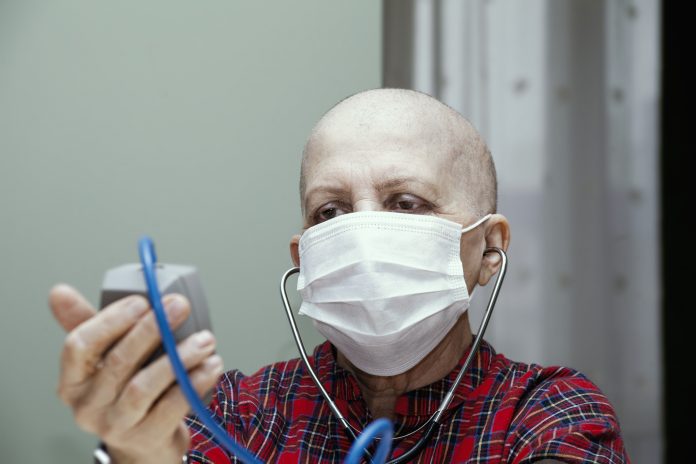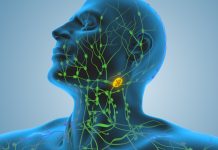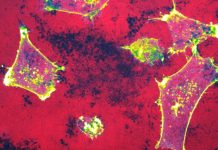Hugh Bettesworth, CEO, Mirada Medical, explores how AI autocontouring technology can help tackle the cancer care backlog as a result of the COVID-19 pandemic
The human impact of COVID-19 on cancer care was summed up by Dr Tristan Cope, Medical Director at the Aintree University Hospitals NHS Foundation Trust. “It’s devastating for the patient if they’ve come into a hospital, expecting to have a potentially life-saving cancer operation and, that morning, are told it can’t go ahead,” he stated.
Dr Hope’s words get to the crux of the issue facing cancer care teams across the UK. The first wave of the pandemic created a worrying backlog; Cancer Research UK estimated that 12,750 fewer cancer patients had had surgery, 6,000 fewer had received chemotherapy, and 2,800 fewer had had radiotherapy due to the postponement of routine NHS care.
These findings will only have been exacerbated by the current crisis. Cancer charity Action Radiotherapy recently stated that cancer services would need to be working at around 120% to clear the backlog over the next two years. But without any extra funding for new, smarter equipment, the problem could take until 2025 to clear. Professor Pat Price, Chair of Action Radiotherapy, said: “The message to the government is that you have really got to invest now, just get on with it and put some money behind it and respond to these smart solutions that are available.” One of these ‘smart solutions’ is AI-based technology, which has an important role to play in making cancer treatment more effective and efficient.
Smarter treatment requires new technology
It is important to note that many hospitals have been innovative in their approach to delivering cancer care during the pandemic. Many are using hypofractionation regimes to optimise the delivery of radiotherapy. Hypofractionation is a technique where patients are given a smaller number of radiation treatments at a higher dosage rate. By reducing the number of sessions and hospital visits, treatment is faster, while also minimising patient exposure to COVID.
However, more powerful doses require greater precision. This is where Artificial Intelligence (AI) has an important role to play.
AI Autocontouring
AI technology can automate and improve the time-consuming and skill-intensive task of outlining organs at risk. This ensures that healthy tissue is not impacted by radiotherapy treatment, a critical process given the higher doses delivered under hypofractionation regimes
Discussing the impact of AI Autocontouring technology, Angela Rubio, former Chief Medical Dosimetrist at the University of New Mexico Cancer Centre stated that: “Prior to using AI, contouring for a head and neck cancer patient would take about two hours to complete. With autocontouring it takes about 30 minutes. That is a 75% time-saving for each head and neck patient. Essentially the technology is saving us seven hours a week; almost a full working day.”
The widespread use of AI autocontouring has the potential to deliver similar efficiencies across NHS cancer clinics. This would enable time-pressured healthcare teams to treat more patients and tackle the COVID backlog.
The potential of AI autocontouring to enhance cancer treatment has been recognised by the UK government. Secretary of State for Health Matt Hancock stated that: “the NHS is committed to fast-tracking pioneering AI technologies to the front line, freeing up clinicians time and saving lives”. As part of this commitment, the NHS recently announced a £140m AI in Health and Care Award programme. It was positive to note that one of the key awards focused on progressing AI-based medical imaging.
Catch-22 for clinicians
While the government and healthcare practitioners recognise the value of AI autocontouring in cancer care, getting these solutions into the hands of frontline staff presents a major challenge. NHS staff are stretched to the limit as they tackle COVID whilst trying to minimise the impact on cancer treatment.
Dr Rob Chuter, Principal Clinical Scientist at The Christie NHS Foundation Trust, states that additional support is needed to deliver AI technologies more widely. “Adopting and implementing new technologies into NHS infrastructure is a complex task requiring both investment and training. Clinicians just do not have the time for this at the moment, they are too busy to step off the conveyor belt. We need more resources for training and development to integrate AI technologies into cancer care, ” he states.
In response to this challenge, some of the companies developing AI autocontouring solutions are launching NHS Accelerator Programmes. These are designed to fast-track access to this technology at this critical juncture. Accelerators can significantly reduce the time taken for AI autocontouring to be live in clinics as well as providing hands-on support to upskill clinicians.
Planning for the long-term
As we have seen, investment in AI technology has an important role to play in supporting the NHS as it seeks to maintain cancer care services and tackle the COVID backlog. However, the adoption of technology into the cancer care workflow is also an important building block for the future of cancer treatment in the UK. All predictions indicate unprecedented future demand for cancer care; Cancer Research UK projects a 40% increase in cases by 2025. By embedding AI technology into cancer care now, the NHS can ensure that one of the legacies of COVID is a more efficient and effective treatment system for the future.











